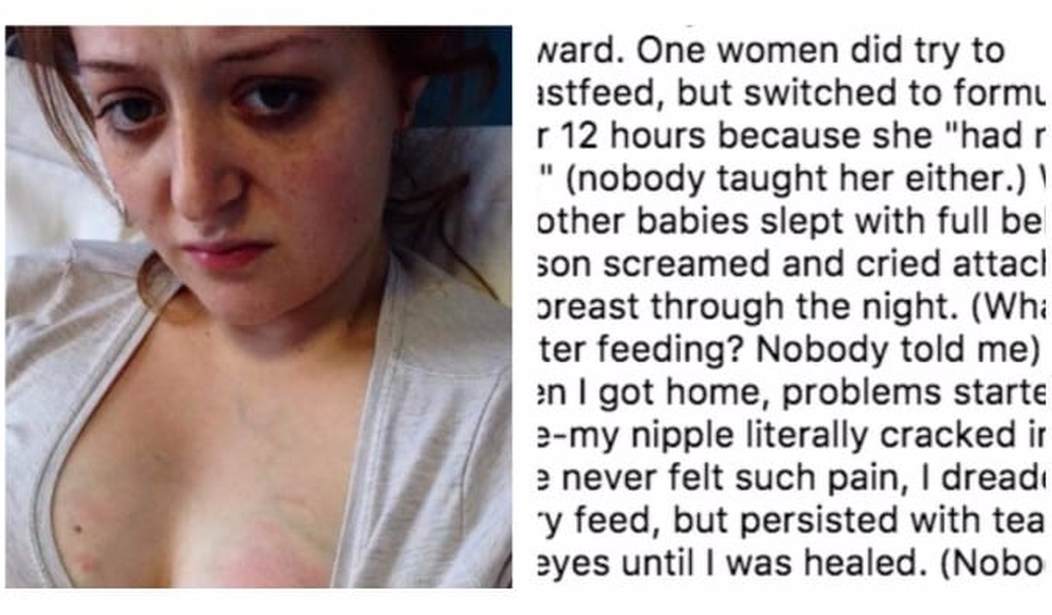Like many new mothers, I struggled with breastfeeding. I even went to the local breastfeeding group six days after giving birth to see if I could pick up any tips. What I did pick up on was a lactation consultant anxious to feel up my baby’s mouth in pursuit of a tongue tie that didn’t exist. I also picked up on a bunch of uber-trendy sanctimommies judging the evils of formula in Valley Girl accents. But, the one thing I remember the most about that visit was the woman who sat there looking wrecked trying every gadget and trick in creation to get her child to feed. After four months of pumping and feeding non-stop, she was one pediatric appointment away from having her son declared “failure to thrive” for lack of weight gain. When she mumbled something about possibly using formula, the women next to her gagged. “You’re a hero,” they said, “a supermom! You’d never do that for your baby!” Idiots.
Another mother struggling with breastfeeding recently took to social media to share her experience with life-threatening mastitis.
She didn’t do it to be a “supermom.” She shared her story to draw attention to the complete lack of breastfeeding education and support. And she’s absolutely right. The majority of today’s women weren’t privileged to grow up watching their mothers breastfeed. Chances are if they do have siblings, they were all born close enough together to miss out on feeding memories altogether. It’s more likely that their mothers formula fed for the same reason most women do today: They needed to get back to work. And let’s face it, even though breast pumps have come a long way, how many women are really comfortable sitting at their desk with two pumps attached to their chest for up to 30 minutes every three hours?
It isn’t just work culture that doesn’t mix well with breastfeeding. There is a certain expectation applied to children in public. I’m not just talking about public breastfeeders being shamed. I’m talking about babies being expected to never cry, let alone make a scene in a public venue. Whether you’re on a plane, in a mall or attending a religious service, children are still supposed to be seen and not heard. How can women expect to be able to freely feed their baby in public when that child gets a slew of dirty looks for simply crying because he’s hungry?
We expect women to put newborns as young as eight weeks old into institutionalized daycare so they can get back to work. We prioritize money over family and then we get shocked when family-supporting biological functions aren’t supported and cheered on by the wider population. We politicize breastfeeding in terms of insurance coverage for pumps and workplace provisos for lactation time. We monetize counseling in the form of lactation consultants with billable hours. And in all of this we remove the one thing new mothers need the most: interpersonal connections and trusted emotional support. We talk about normalizing breastfeeding, but the conversation we really need to have is about normalizing family life and everything that goes along with it.








Join the conversation as a VIP Member